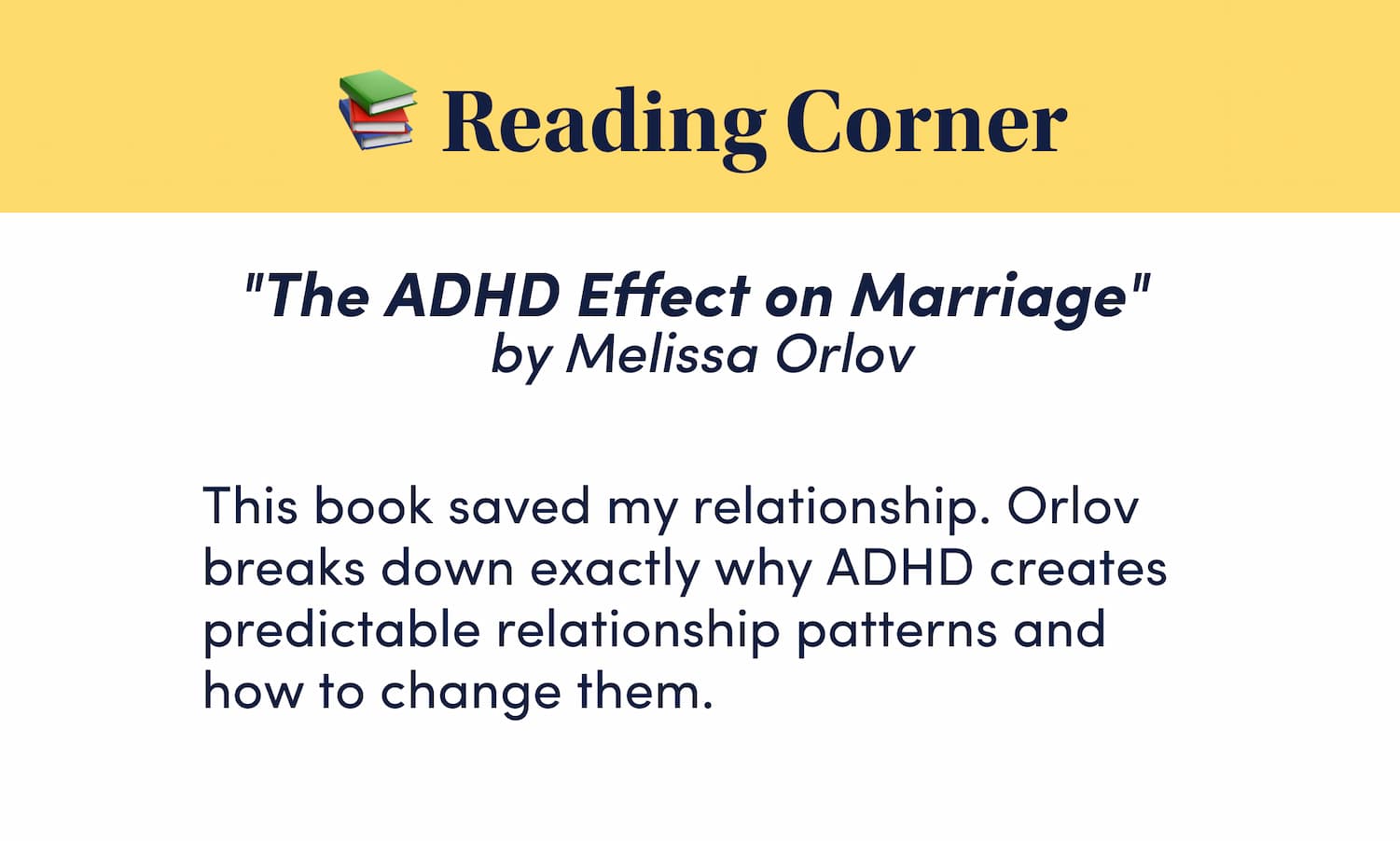At 31, I became two statistics in the same year: divorced and diagnosed with ADHD.
Talk about a wake-up call. Everything about my failed relationship suddenly made sense. The forgotten anniversaries. The emotional explosions. The inability to follow through on promises. Classic ADHD. But understanding the problem wasn't enough.
That's when I found the research that terrified me: People with ADHD are nearly twice as likely to get divorced. I'd already become that statistic. The question was: how do I make sure it doesn't happen again?
Here's where it gets worse: If your parents are divorced, you're 91% more likely to get divorced yourself. My parents divorced when I was young. So let me do the math: ADHD + divorced parents = a relationship disaster waiting to happen.
I'd spent years designing productivity tools for my ADHD brain. The Self Journal was born from my own desperate need for structure. But I'd been so focused on crushing goals that I'd ignored the most important system of all: my relationships.
The truth is, I didn't know HOW to be in a healthy relationship. When you grow up in a divorced family, you don't get a roadmap for what "working through it" looks like. You see the before (fighting) and after (separate houses), but not the middle part where people figure things out together.
The Missing Manual for Relationships
After my divorce, I dove into relationship research with the same intensity I'd applied to productivity systems.
Dr. Melissa Orlov, who specializes in ADHD and relationships, found that ADHD couples who implement "external structure" report 73% higher relationship satisfaction. The key word? External. We can't rely on our brains to remember what matters. We need systems.
Just like I'd created systems for friendships (remember those monthly dinners?), I needed a system for my most important relationship.
When my partner and I got married, we started with one simple ritual: Every Sunday at 11 AM, we have our "Weekly Sync." Twenty minutes with our morning coffee, three questions:
-
What's on your plate this week?
-
What do you need from me?
-
When are we connecting, just us?
That's it. But for an ADHD brain that struggles with time blindness and working memory, this external checkpoint changed everything.
Why This Matters Even More After Kids
When my daughter arrived, our weekly sync went from helpful to essential. We weren't just coordinating two lives anymore. We had a tiny human depending on us.
The research on "default parenting" is sobering. In most couples, one person becomes the default parent who tracks doctor appointments, knows which foods the kid won't eat, and remembers that Tuesday is library day. This invisible mental load destroys relationships.
Our weekly sync prevents this. We explicitly discuss:
-
Who's handling daycare pickup each day
-
Which parent is "on duty" for night wakings
-
When we each get solo time to recharge
-
What household tasks are priority
No assumptions. No resentment building. Just clarity.
The breakthrough was realizing that most of our conflicts came from mismatched expectations. I expected my partner to know I had a deadline Monday. They expected me to remember their mom was visiting Tuesday. We both expected the other person to be a mind reader.
Our weekly sync changed that. Now we're literally on the same page about what's coming up, who needs what, and when we're making time for just us. No more assumptions. No more resentment building from unmet expectations we never even communicated.
The best part? It takes just 20 minutes to prevent a week's worth of miscommunication.
And here's something I didn't expect: my daughter sees us doing this every Sunday. She brings her coloring books and sits nearby while we talk. Sometimes she'll announce her own "plans" for the week (usually involving the playground and ice cream). I like to think we're modeling something I never saw growing up: two people actively choosing to stay connected.
This week, try a 20-minute expectation alignment with your partner:
The Setup:
-
Pick a consistent day/time
-
Set a recurring alarm (ADHD brains need external reminders)
-
Have a notepad ready
-
Keep it to 20 minutes
The Questions:
-
What's on your plate this week?
-
What do you need from me?
-
When are we connecting, just us?
Make it easier: Start with just 10 minutes and one question: "What would make this week easier for you?"
Want a template? I created a free Weekly Sync Template that walks you through exactly what to cover. Grab it here to get started this Sunday.
 🔍 Spotlight: The Relationship Journals
🔍 Spotlight: The Relationship Journals
We actually created a two-journal system where each partner has their own journal, and you go through a 13-week structured journey together. The weekly sync is built right in, along with exercises we developed with relationship psychologists.
Here's the thing: these work best when you're already in a good place. It's about building a solid foundation, not fixing what's broken. Think of it like going to the gym when you're healthy, not waiting until you need physical therapy.
If you want to explore them, use code WEEKLYSYNC for 25% off this week.
Those divorce statistics don't have to be destiny.
Here's what I've learned: every couple needs systems to stay connected. For those of us with ADHD, external structure isn't optional, it's survival. But even neurotypical couples drift apart without intentional practices.
Twenty minutes every Sunday. That's all it takes to stay on the same team instead of becoming roommates who share a mortgage.
Your relationship deserves the same intentionality you bring to your work calendar. Because unlike everything else on your to-do list, this actually matters.
Here's to breaking the generational chain,
Cathryn.



























